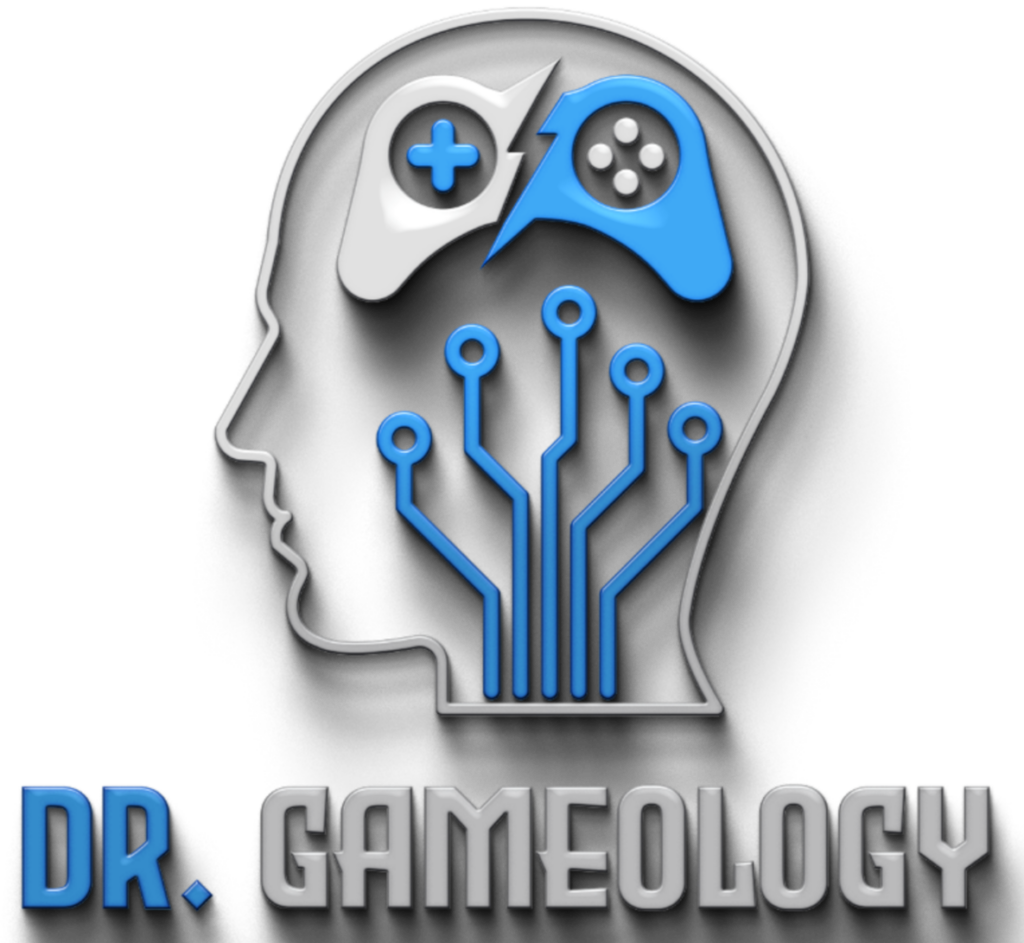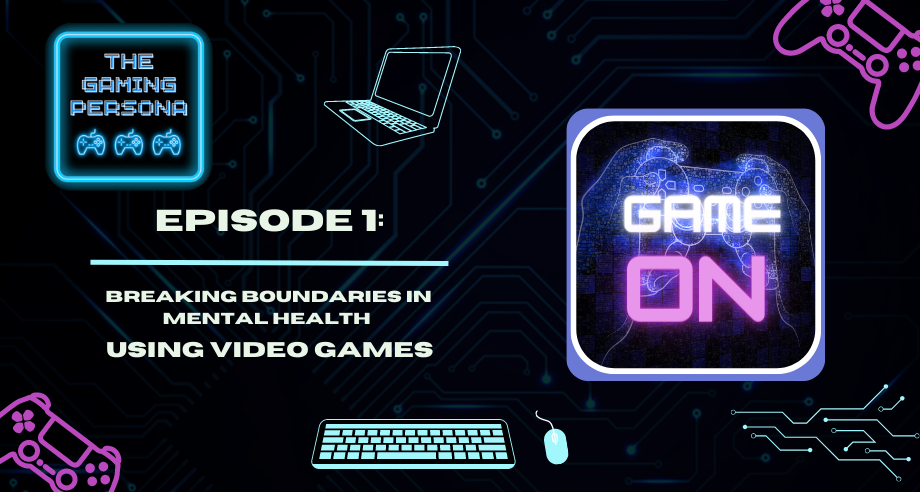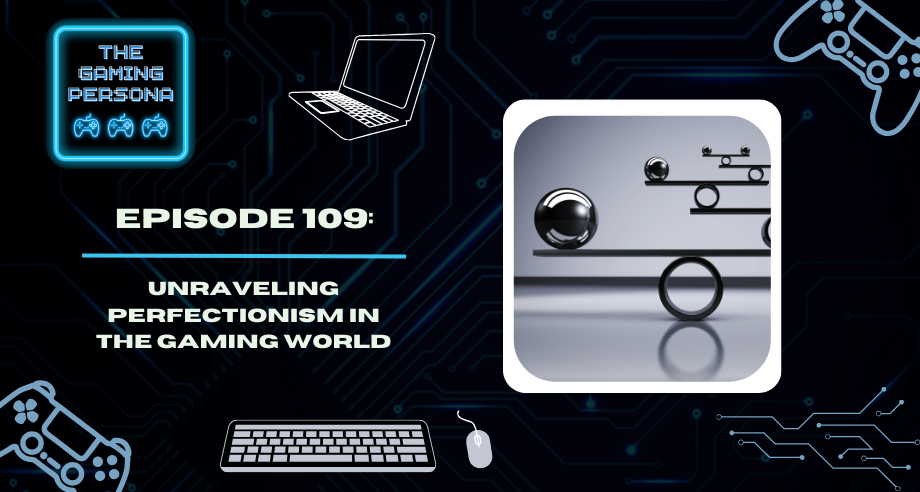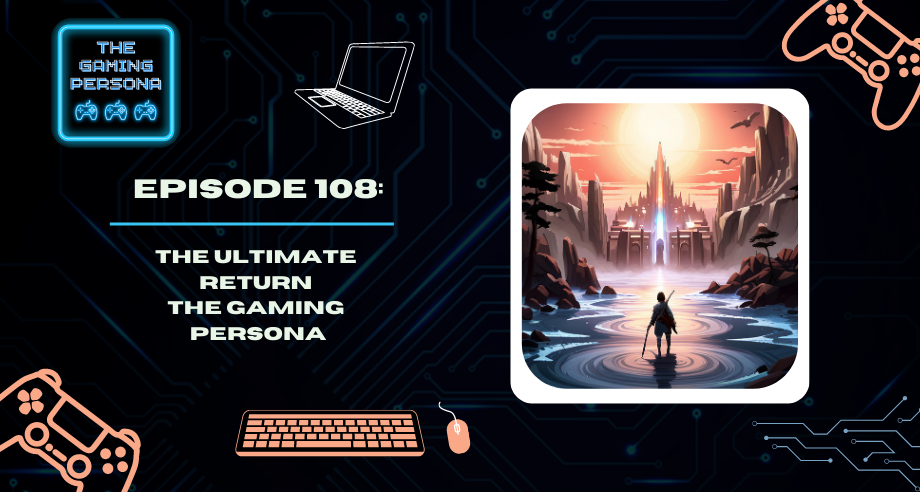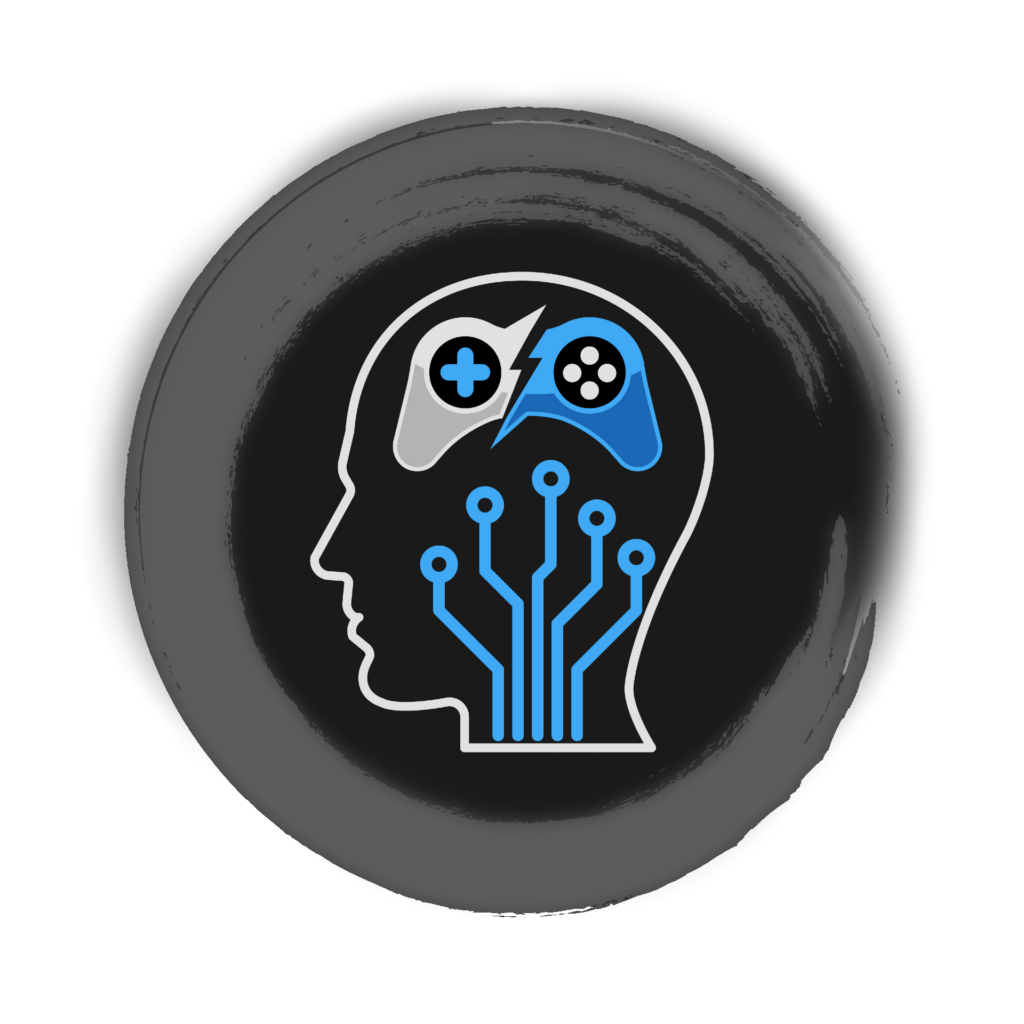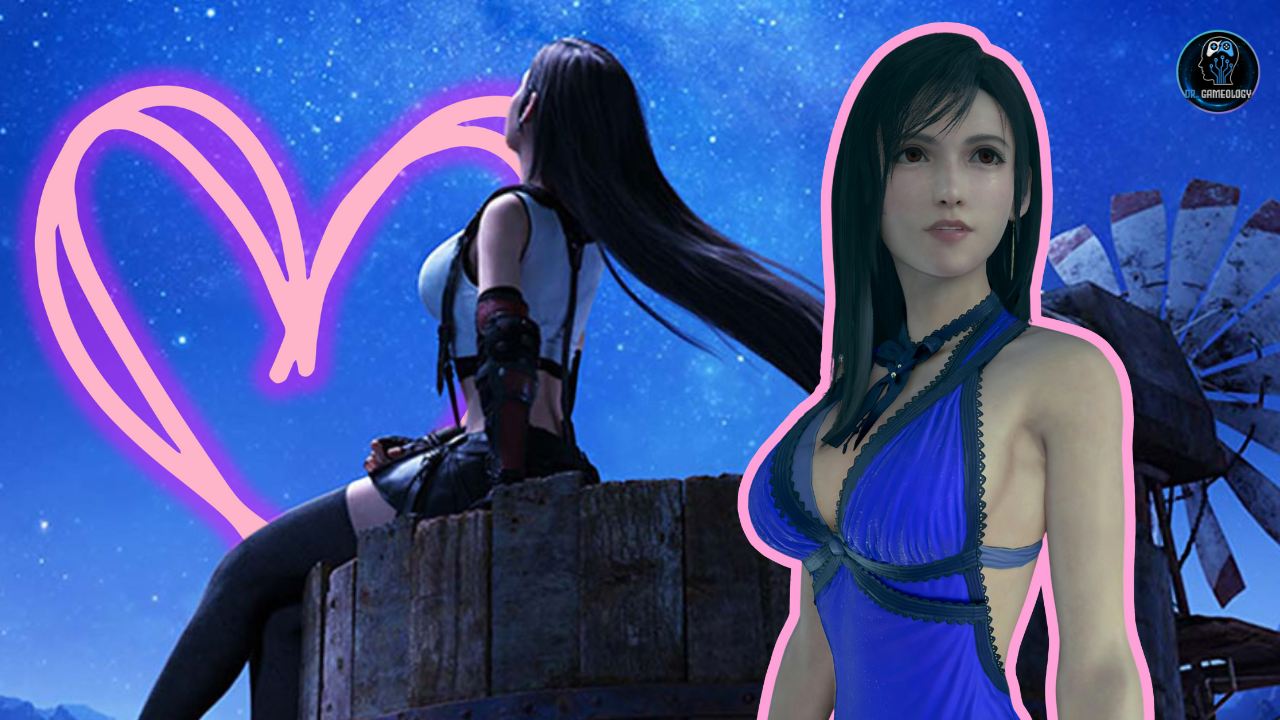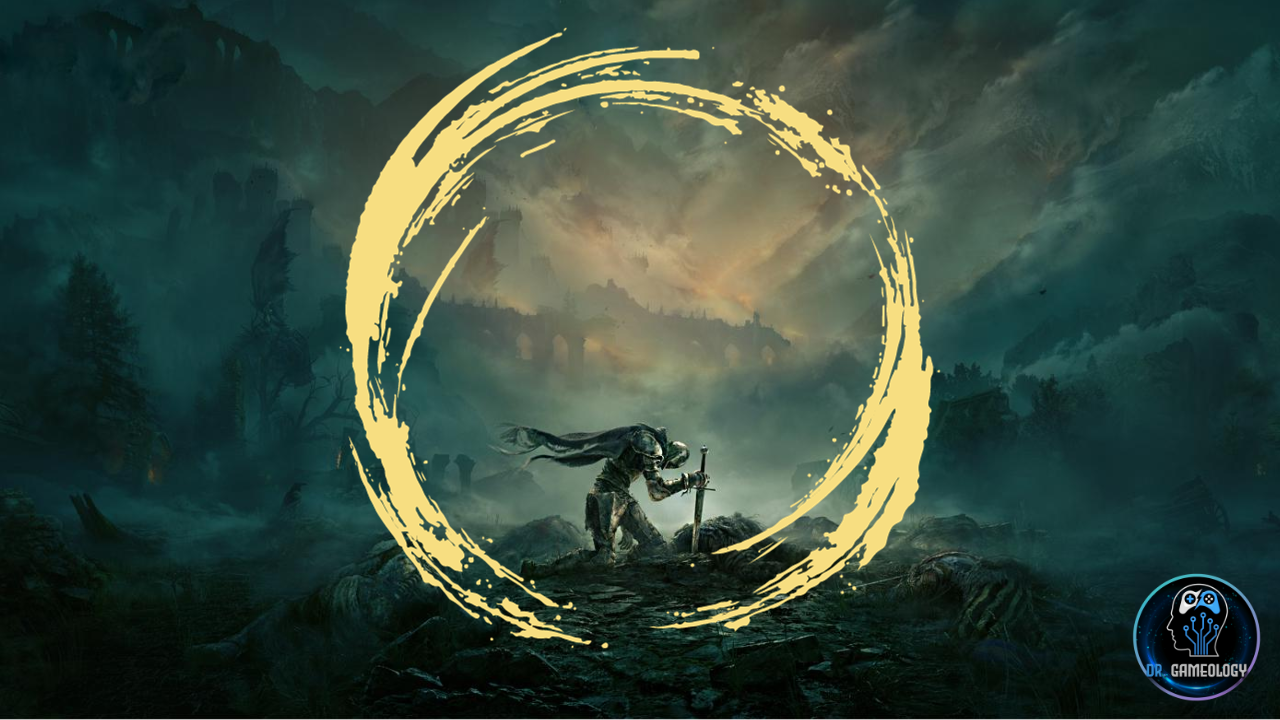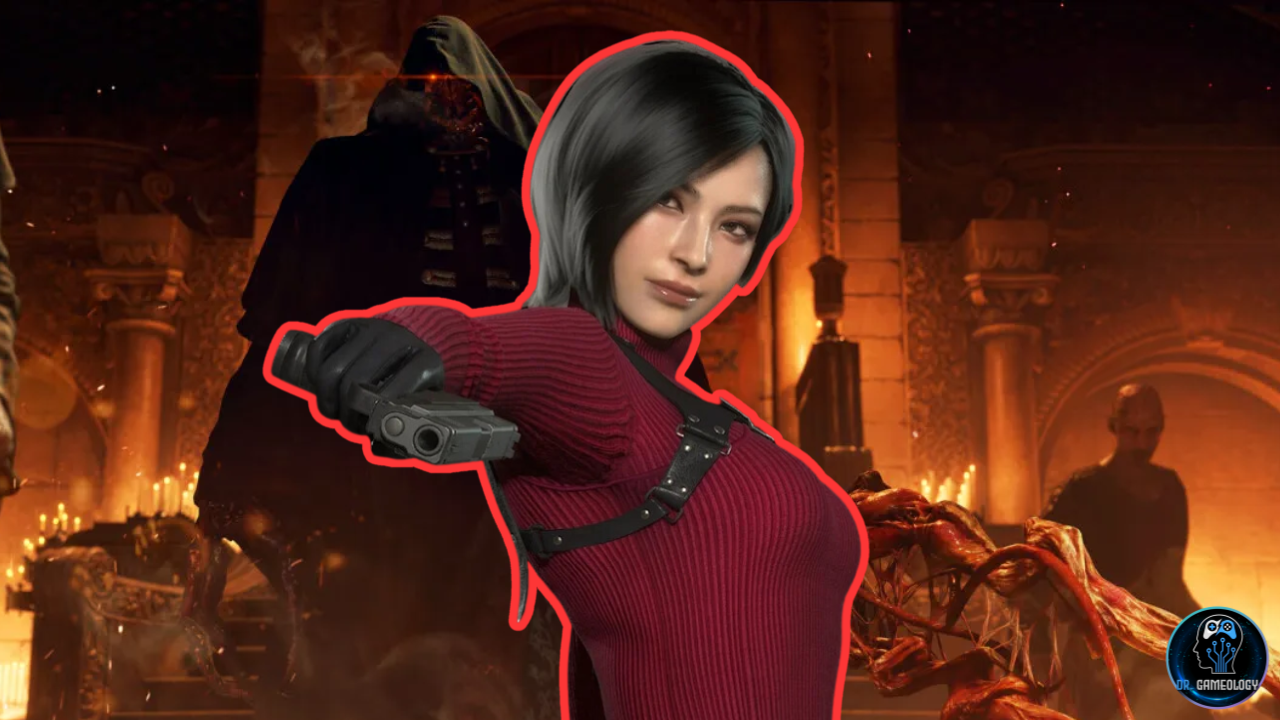The Gaming Persona: Breaking Boundaries in Mental Health Using Video Games
In this stirring episode of “The Gaming Persona,” hosts Jenny and DrGameology delve into the rich and multifaceted world of gaming. They share their personal journeys in the realm of video games, the challenges faced, and the rewards reaped. Jenny talks about her new venture, Gear Up Gaming Shop, and her role in promoting gamer-friendly products, while DrGameology centers the conversation on integrating mental health discussions into the gaming arena. They both reflect on the power of storytelling and emotional resonance in video games, aiming to foster a positive dialogue on gaming. Tune in as they set the stage for future episodes, including an upcoming exploration of the impact of 2020’s quarantine on gaming.
—
Listen to the podcast here
Episode 01: This Is “The Gaming Persona”
Welcome to The Gaming Persona. This is the show for exploring who we become when we play games. I’m your host, Dr. Gameology from Twitch and grad school classrooms across the country. I’m joined by my cohost, Jenny Lebron, from the Gear Up Gaming Shop. How are you, Jenny?
I am doing fantastic. I’m excited to be here.
What are we reviewing in games?
We are going to introduce the world to The Gaming Persona.
That means a lot of things to me because I’ve researched games. I’ve been playing games my whole life. I’m sure everyone here has too, but persona has a specific importance to me that we will get into later. What do you think, Jenny, are some of the things that our audience should be aware of up here at the beginning of our first episode?
We could talk about who we are and a little bit about what gaming is for each other.
One of the things that I’m passionate about, I know that we’ve talked about this for hours and hours of our life but now we’re sharing this with people, is I love video games but I’m also infatuated with the hero’s journey. I thought it would be fun since video games often gravitate around this idea of you’re the hero and you’re awakening to this big conflict in the world and you develop these powers and find these new weapons. I wanted our show to experience that same kind of journey.
Before a hero first set out and realizes that they are special or they have the potential to do something great, they are usually stuck in this mundane ordinary world situation, where they see something amazing in the distance but they believe that it will never be a part of their life. That ordinary world is where our show can create some interesting topics. To start off our very first topic and the first episode of The Gaming Persona, this is what I want people to expect. I thought we could start with what is gaming for both of us and see where that takes us. Jenny, what draws you to the different worlds of video games?

Gaming has always been a part of my life. I remember as a kid, my brother and I were playing Zelda on NES and Super Mario Bros. 2, which I played recently. Somehow, I remembered where some of those hidden potions are and I couldn’t believe it. We had the original Game Boy, which I distinctly remember a conversation that we had where we were like, “Imagine if there was a Game Boy that you could play that was in color just like our TVs.” I’ve been playing since ancient times. It’s fun to think about how far gaming has come and how much gaming has been a part of my life since then. We pretty much had every system growing up as they came out. Beyond that, my family is into game nights.
We did board games. I’m also super into table games. I got into Magic: The Gathering after college. I used to play Dungeons & Dragons a lot. I missed that. I’ve been pestering one of my friends to DM a game for us. That’s my history of gaming. Now I’m a PC gamer. As far as what gaming means to me as I’ve learned through knowing you and having you as one of my besties. It means a few different things to me now. It allows me to act out my, I don’t want to say need for achievement but it’s kind of a need. I thrive when I’m achieving things in my personal life, my professional life and gaming. If I start a game and I am terrible at this game, awful and suck at it, it’s great for me because it means that I get to work on it. I get to figure out, “How can I do that better? How can I work at this best to myself or best to others.” I love PVP. I know you’re not.
One of the reasons why I love gaming is setting out goals and achieving those goals for myself. The other component that’s important to me is the social component. Gaming started out as something that I got to do with my brother who was my best friend growing up. After college, I loved hosting our weekly Magic: The Gathering nights and ordering pizza and beer and playing Magic for hours or doing our raid nights in SWTOR. Especially during quarantine, I don’t know what I would have done without being able to log in with my friends and play Sea of Thieves every once in a while.
Having that community is super important to me. That connection with other people is big. When you have that first meeting with a person, it can be awkward. It can be that awkward first small talk. I’m not great with that. I’m an introvert. It’s hard for me to have those first conversations, but if I can slip in there that I’m a gamer or even just anything that has to do with nerd culture or fandom culture, I’ll sneak in that I’m a Hufflepuff or something like that. If the other person shows any relation to that, all of my anxiety goes away and I’m like, “You’re my person. You are my people.”
We also have so many cues on our person often into what kinds of topics are going to work that way. If you and I don’t know each other and I’m walking up to you and for some reason, we have to talk or we’re stuck in a waiting room and you want to kill the awkward silence, you might see that I’m wearing a Slytherin shirt. Interestingly enough, have there ever been podcasts where Slytherin knowingly starts interacting with a Hufflepuff?
I don’t know
Whenever the next Harry Potter game comes out, we’re going to have to have a field day with that question. How does that even happen? You said something in there that creates a nice bridge to what gaming ends up being for me. It wasn’t the comment about being introverted or even about your quest for personal progression. Although those things are fascinating to me, it’s this idea that the game gives us this safe space and that it’s a safe haven or a respite even in the midst of isolation.
Games are not just something I do to have fun. They are the foundational piece in many ways of my professional identity as a mental health counselor and as a grad school professor. One of the things I run into all the time when I’m counseling somebody, it might be a teenager or a young adult, is some people in their life are judging the way that they play games. They are blaming games for a lot of the difficulties they may be facing.
Games give us this safe space and it's a safe haven or a respite, even in the midst of isolation. Share on XThey will talk about how they have no friends. When I’m talking one-on-one with this supposedly no-friend person, it turns out that they’ve interacted on a name-to-name basis with about four times the number of people I’m going to interact with on a given day where I go to work or interact with my family or have the opportunity after work to do something with my friends. On a given day, also being introverted, I have a hope of genuine interaction with 8 to 10 people.
It’s so easy signing into a game for 90 minutes to interact with your guild. In 15 minutes of time, do a short planetary mission, interact with three people, name to name, voice to voice. You know these people, what state they are in, and what their passions are outside of this game. You know that one is an artist, one is a photographer, and one just likes to watch all of the Tarantino movies. You jump from that quick 5-minute activity and the other 10 minutes you’re doing a raid with 15 other people. You know all of them too because you’ve done these missions 20 times in your life. It’s a fun social atmosphere. The thing that is not lost upon me is you actually have built friendships with all 18 of those individuals.
That’s the power of games, especially in a quarantined world. I’m excited to talk about that at a later episode. Continuing with our ordinary world is the starting point of our journey. I wanted to talk about some of the imagination components of why experiencing a video game and being transported to a place like Hyrule or the Mushroom Kingdom or some of these other places could be fascinating to both of us. Jenny, I wanted to ask you, what are some of the more creative spaces that video games help you to get into?
I am a photographer as my profession. I’ve been able to use my geekiness and that side of my personality and have infused that into my branding for my business. All over my website, there are few references to gaming and nerd culture. Even on my inquiry forum, I have a cute little quiz that asks people to tell me what their alter ego is, whether it’s Hermione Granger or General Leia or lots of different characters from different fandoms. As far as creativity goes, I am able to infuse that in so many parts of my life. It’s fun because it attracts the type of clients that are my pupil.
I get inquiries from the most amazing people. We have something to talk about right off the bat when it comes to taking photos and meeting my clients and getting them to get out of their shells so I can take genuine photos of them. It’s a lot easier because I already have something in common with them. I can already feel connected to them because of gaming, this culture and all these stories that we all know.
That’s a creative idea that you can use a quiz to help people give you ideas for framing photos and your other kind of service that you’re giving them. That’s a neat idea. One way that I use a similar approach is the name of my counseling practice, AOE Counseling. It’s Area of Effect Counseling. I did that on purpose when I was trying to think about how I wanted people to know me and my place in the field of providing therapy services for people.
I wanted a name that at least demonstrates to people who may have an issue related to gaming that I’m not going to shame you out of the room like your parents and other people in your life do. I’m in this. I’m talking with counselors about this. I’m trying to educate the country as best as one person possibly can. There are healthy and wonderful ways that video games give something to our society. I look at games like they are the modern myth.
If we somehow freeze ourselves on ice for 1,000 years, we get to see this new society. Somehow society is not imploded and it can still exist. Barring that kind of cataclysmic problem and seeing where humanity has advanced 1,000 years from now, we’ll still see going back far enough that ancient Greece gave us Zeus and all of his wonderfully dysfunctional family situations.

In the ‘80s, ‘90s, 2000s and where we are now, we have our stories. Our stories are things like Final Fantasy VII, The Last of Us, The Legend of Zelda and things that prompt us to learn lessons about life, hope, triumph and resilience. Also, persevering through catastrophe, loss and pain, how we grieve, and how we interact with each other in polite ways and impolite ways. I love that games in recent times have been tackling more important themes.
I got done playing The Last of Us Part II, but also even thinking about games like Detroit: Become Human, where you’re directly confronting the problem of certain people’s lives. You’re defining what is a life and who should matter. It’s clear that our society hasn’t learned the lesson from a video game such as Detroit: Become Human yet. I think that’s where the wealth of our philosophy for life is at the present time. We see some of it in cinema but I believe that video games are where we’re hitting on all cylinders in terms of the modern myth and what it means to experience humanity.
I want to transition here and give us a little bit of time to talk about our name. I’ve talked with our audience a little bit about why the word persona means so much to me. I’m going to take us into the classroom for a little bit. When you say the word persona, you are summoning the presence of Carl Jung, one of the early psychologists from the early 1900s. He’s the person whom a lot of the ideas that we take for granted emanate from.
Persona is the root word that leads to our word personality. It’s much different than even we think about when we say the word personality. A persona is a stance that I’m taking in a given situation. The sets of knowledge, the presence and the purpose that I seek to fulfill in that situation. Across a given day, there may be personas that I may utilize. I have the husband and the father persona where I’m in this room and I’m fulfilling that purpose. The expectation of interacting with me, if you’re certain people runs through understanding what that role is. I also have personas of being the educator, the game player or streamer, the person who researches games as Dr. Gameology, maybe the expert on academic kinds of interactions.
We alternate in many ways between the basic roles that we play. People probably have a work persona, a home life persona, and maybe a casual or social friend-based persona. This helps us to understand ourselves in a lot of ways. We have a game series named after it too. We’re talking about games and what makes us feel motivated to sit in front of a microphone and talk about these things on a regular basis together. Now that I’ve brought the persona into it, what are some of the things that you’re excited about creating this show together with me, not just talking about games but the persona of playing different kinds of games?
I’m excited. It will be interesting to explore how people’s different personalities and personas in real life influence their gameplay, the types of games that they might choose, the types of gameplays that they might choose, and what they choose to do in-game. Also vice versa, like how maybe gaming impacts people’s lives and how it might improve their lives or how it might not improve their lives.
Also, shatter their lives. I’ve got some episodes from time to time about that but I want to get into those positive ones.
That’s what I’m looking forward to. Also, I’m looking forward to reflecting on myself and my relationship to gaming and just thinking about that more and learning about that a little bit more with you.
Video games are where we're hitting on all cylinders in terms of the Monomyth and what it means to experience humanity. Share on XI hope that one of the side effects of doing this show that I’m hoping both of us can experience on a routine basis is to enhance the love we have for games. We have conversations on a weekly basis anyway that some people could find useful or inspiring. I’m excited that we’re getting to share a bit of that in a planned way.
What I’m fascinated about too is the idea that we bring ourselves into the game. We fill in the gaps of that experience. There’s this part of a game that the developer cannot create for you and it’s who you are. By playing certain games and exposing yourself to the concepts in them, the challenges in them, and what it takes to triumph in them, you are changed as a person as well. A powerful part of games is that I enjoy every game I boot up. I don’t know if very many people think about the player change by experiencing a game and going from the beginning, middle and the end, and then moving forward in life with that game being part of your story now.
The last part of our ordinary world here, before we explain our segments and get everyone moving on to the rest of their life is how do we know each other? I wanted to share a little bit about this because we’ve raided together in Star Wars: The Old Republic. You even helped me stay safe during one of my Last of Us streams where I was freaking out. You jumped in Discord and helped me to focus on getting headshots instead of getting my face eaten off. People may be aware a little bit about you but I wanted to get into us talking about games. Anything comes to mind that would help the audience realize, “This research guy is still talking about games?”
Daniel and I met years ago. I honestly don’t know how many years ago.
We don’t need to date ourselves here. It was a long time ago in an office where I was working with you.
Years ago, we met at work. I had been working at the office for a few years. Daniel was the new kid. I was the admin assistant so I had to take care of all the paperwork and everything like all this new hire paperwork. I was doing that and I came across his personal check. I had to make a copy of his check for the direct deposit. It was a Batman check and I was like, “This must mean he is into comics. He must be my people.” I commented on it to him. I was like, “Your checks are cool. I like your checks.” I don’t remember exactly what I said. Do you?
I don’t recall because the importance of this conversation did not become something I was aware of until later. It’s stuck with me as one of my best friends in life through the development of that relationship hinges on me not wanting to be lame and using the default.
The moral of the story is to get the cool checks if you can. That’s how it started. I remember little conversations here and there. I remember a conversation that we had once where you were telling me about the beginning of your research paper or your dissertation. I have been a gamer forever. You were explaining to me what DPS was and what tanks were. I was like, “I know. I was a DPS because I played WoW.” I remember that conversation and you being surprised.
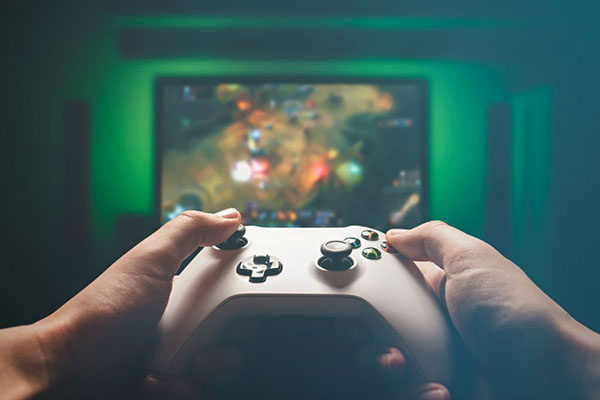
I remember this conversation. I probably said wow right back when you said that you played WoW. That’s the beginning of all the corny things I’ve ever said to you. I remember shortly after that conversation that I was talking about one of my new characters that I created in SWTOR. I had asked if you would be interested in forming or raid team and playing or maybe not even a raid team, just playing with me.
You said you would love to do that. I was like, “Really? I made a friend.” This is a time in my MMO gaming experience when I had never done a raid. I was not part of any guilds. I thought, “If I want to play these things, I need to convince my real-life friends to play with me.” I had no concept of online communities. Jenny, you saying that you would play cascaded into me developing this, I wouldn’t call it confidence, maybe this bold and unearned stupidity or courage to ask people who want nothing to do with me to create a character and join my raid team. Probably within 4 or 5 months of you saying you do some planet missions with me, we had a team. We were playing on the Republic side in Star Wars: The Old Republic. We started getting our experience and trying to fight bosses in a group of eight.
The guild who lived.
We’re going to have to make this pay off. We’re going to have so many Harry Potter conversations as we’re laying a foundation that it is the most important franchise. Maybe we should do a segment where at the end we name Fandom of the Episode. We crown a new fandom champion at the end of our conversation.
That could be fun. We will tally how many times we mention it.
Maybe give it props at the beginning of the next episode after edit. That will be fun for us to be accountable for our conversation. Back to the long story short, get the cool checks, use your fandoms to build communities and not be alone. That’s one of the biggest benefits. The easiest way to overcome isolation is to join a cult or carry your fandoms with people. You all know which one is a more positive influence on the planet.
I’m going to talk about our segments. This goes back to my love of the hero’s journey. This goes so deep. I can’t explain this in our intro episode, why the hero’s journey is important to me, but just the short-form version. It’s important that I wrote a journal article specifically about when I’m teaching counselors, I have this they are Luke and I’m Obi-Wan kind of feeling. It starts from there. I’m fascinated with what they’re going to do with the influence of their mentors and the new abilities they’re learning from them.
In this show, I want us to pay homage to how important the structure of that journey is to me as a professional and also as a video game player. We’re going to start off with a Call to Adventure every episode. That’s going to give Jenny and me a chance to introduce the topic, explain how this topic came into our focus that week, and why we think it will be a great conversation. It’s a great icebreaker.
The messages we get about certain games are well-intentioned. They're just not expressed in a way that makes people want to listen to them. If we learn to notice them then we can start to use them in our lives. Share on XWe’re going to move into a Road of Trials where we don’t just talk about the game, but we talk about what it’s like to play the game, what it’s like to be challenged by the game, influenced by the story, and to move through it. This doesn’t mean that Jenny and I have mastered every game we’re going to talk about, but it gives us a lot of opportunities.
My favorite part after that will be the Ascent. We want to elevate the topic. This is where hopefully, I can connect some research insights or actual interaction or data with gamers I’ve talked with, or different literature that has led to some of the work I’ve done, and connect it back to that game and what players are experiencing. We will then wrap it up and return to the ordinary world. Jenny, before we move towards that return to the ordinary world, what are some of the journeys that make you have a passion for games and the kinds of storytelling and experiences that they’ve given you over the years?
I’ve talked about that a little bit with my history. I grew up with gaming. I used it as something to connect and bond with people throughout my life. I’ve used it professionally, not only with my photography. I’ve also built a new business revolving around gaming.
Tell us about that.
I started a new business. It’s called Gear Up Gaming Shop. It’s a shop where I get to be creative and offer different gear for gamers. Right now, I am offering blue-light-blocking glasses, which is super important especially since we’re all on our screens way more often these days. Beyond that, I’m excited about all the different things that I have planned and different products and partnerships and things like that that I have in the works for the future. These are the types of things that gaming has provided for me in my life. Also, this show. This is cool and exciting. It’s fun to talk about. We have these conversations every week anyway. It will be fun to have a structure to it and share this with all of you.
I know we’re setting up on the work we’re going to do in the future episodes, but there are many streams I’ve done on my channel. I want to talk about those games and get into more games and talk about our review for games sometimes, or some of the unique things this game gave us to interact with that I haven’t run into before, and why I think that’s great for the future of gaming.
The thing that I’m excited about is the idea of storytelling and making us feel things when we’re playing games. Video games and other things are some of the best places for us to begin understanding who we are. It’s not just a story we’re being told by other people and information we need to be able to recall. We have a more visceral experience even where we’re making the decisions, we’re being punished for making mistakes, and we’re not instantly accepted as perfect. You don’t just rely on rules to protect you. You defend yourself and you do what’s right or sometimes you do what is straight-up evil.
Those kinds of things are the interesting parts of our journey. I want to be a calm and thoughtful counterargument to some of the reaction-based cultures of the internet people. Sometimes the messages we get about certain games are well-intentioned. They are just not expressed in a way that makes people want to listen to them. I’m excited to build a space with you, Jenny, where we can talk about games in a way that builds us up. As we return to the ordinary world for now after our awesome intro to what The Gaming Persona is going to be, would you like to tell everyone one more time where they can find some of the things that you do on the interwebs?
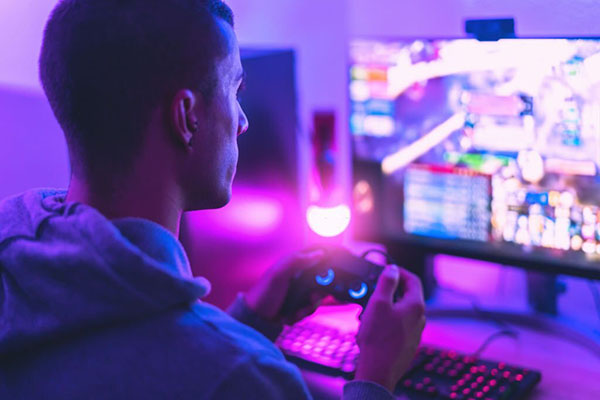
My website is GearUpGamingShop.com. I’m also on Instagram @GearUpGamingShop. My photography page is @J.LebronPhotography on Instagram.
If people want to find me, I’m frequently taking timeouts during my streams to talk about the mental health moments in games. That’s what I hope people will connect me to. It is this show and talking about wellness and mental health in the context of video games and also those moments. You can find me streaming different games that I find interesting at that time at DrGameology.com or if you want to watch me on Twitch, it’s the @DrGameology channel. I’m on all the social media that I care about as @DrGameology. Since you guys are all getting to know me, that’s Facebook and Twitter. I send alerts to Instagram but don’t expect them. That’s probably the place where the bar is set the lowest out of everything that I do in my life. Maybe, Jenny, you can save me some time to understand what I’m supposed to be doing on that.
Maybe one day.
When we do our next episode, we are going to be tackling the awful 2020 quarantine and its impact on gaming. I’m excited to get to share those topics with you, Jenny, and start to build something great. For everyone, I want to let you know one thing, continue the journey.
Important Links
- AOE Counseling
- DrGameology.com
- @DrGameology – Twitch
- @DrGameology – Facebook
- Twitter – Dr. Gameology
